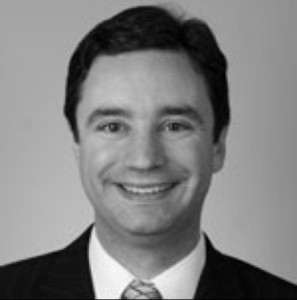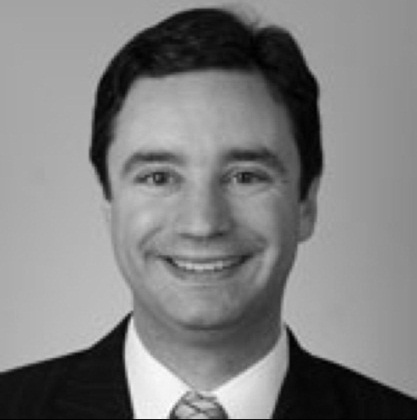Not a Pastor – by Brian Ellison
 Thirteen weeks ago, my life changed. When the local newspaper told my story, the first line read, “Brian Ellison isn’t a pastor any more.” After 13 years, it was true.
Thirteen weeks ago, my life changed. When the local newspaper told my story, the first line read, “Brian Ellison isn’t a pastor any more.” After 13 years, it was true.
I’m still a minister (that is, a “teaching elder” in our denominational parlance). I’ve begun work as executive director of the Covenant Network, a non-profit group doing education and advocacy work, seeking unity and the inclusion of LGBT people in the Presbyterian Church (U.S.A.). But this full-time ministry meant that after 13 years, I stepped away from being a pastor—day-to-day responsibility for the spiritual life of a congregation. Now I would shepherd an organization, not a church. I would work for change and vitality in many congregations, not just one. I would preach and teach, but rarely to the same people twice.
It still feels like a calling, still represents a daily opportunity to both speak and live the gospel of Jesus Christ. Having now joined their ranks, I am coming to understand what parish ministry means to my many colleagues who for years have labored as chaplains, denominational staff, teachers and professors, and even stay-at-home parents who for a time go without a call to a congregation. Each of them has been fulfilling their call to ministry outside the congregation, and yet each of them, I am coming to understand, frequently is asked to define what they do by its relationship to that work they no longer do (or never did), robing up each week and stepping into the pulpit.
Cynthia Holder Rich wrote here earlier this week about making the transition into the parish from life in the academy and on the mission field. Having made a leap in the opposite direction, I can tell you the transition this way is no less jarring. Positive, but jarring.
Don’t get me wrong; there’s much that isn’t very different. My work helping a group of people discern a way forward, planning strategy and making sure there are sufficient funds to live into our mission—every pastor knows that part of my job description well. And the chief-clerk-and-bottle-washer part of the new job, from assembling office furniture to cleaning up messes literal and metaphorical, is part of the “things I didn’t learn in seminary” curriculum that appears on every clergyperson’s life transcript.
And some of what is different—let us be honest—are things I don’t miss and probably won’t ever miss: Every Saturday night writing a sermon or fretting about what has been written; the sadness of sicknesses unhealed or pain unresolved; the insignificant yet time-consuming conflicts that are part of the life of any group living in close quarters with differing priorities.
Still, there are particular things I do miss, and which I suspect I will miss more and more—miss enough that seeking out what they look like in my new context will be essential.
Preaching and teaching rooted in relationship. I teach preaching at a local seminary, and one of the things I try to convey to students is that the sermon is not a document, but an event. Preaching is not so much an exercise in developing and delivering a product, it is a shared experience in which preacher and congregation share an experience of God’s Word coming by the Spirit through text and sermon. What is necessary, of course, for this experience is a relationship. The pastor knows her people. The people trust their pastor. Truth is spoken and then it is lived.
My new job includes some preaching and lots of teaching. But usually, I will preach to a group of people about whom I know something but whom I do not really know, people who know my work but don’t know me. Much that is meaningful can be accomplished in such an exchange of ideas, but the tools of a visiting preacher are very different from the shepherd’s crook and well-honed shears of the pastor. Further complicating my particular task is that because I work for an advocacy organization, every sermon starts from a congregational assumption that people know what I will say. As a host pastor (and friend) invited me to preach on an upcoming All Saints’ Sunday, he felt the need to give me permission “not to preach the company line.” I was thankful.
Built-in community. For all their quirks and foibles, the congregation provides every pastor with something he needs, whether he admits it or not. There is always a group of people interested in the pastor’s life, concerned (more or less) for her well-being, and ready to step up and help in times of greater or lesser need. In my new role, even with a fantastic board of directors and the world’s best group of friends and colleagues, community almost never comes to me. It isn’t something that appears literally at the door of my office every day. I have to seek it out.
With this comes a certain freedom, of course. Without a ready-made group of people to love and care for you on a day-to-day basis, you have the privilege of self-selecting the group that will make up your community of choice. But there is a cost: The persistent presence of God is not so much a living illustration, as most pastors enjoy, but rather an ideal to be sought, an imagined reality.
A ready-made identity. Perhaps the biggest adjustment of all, the place where I most frequently am aware of what a change my life has undergone, is when meeting someone new who asks “what I do.” It used to be so easy: “I’m the pastor of the church up the street.” No further explanation was really necessary. Hearing this may have triggered a passel of assumptions about my beliefs, my interests, my personality or my politics—but at least one could picture it.
Now, of course, answering the question about “what I do” requires a discourse. Yes, I am still a minister. Yes, I have an office. Yes, they pay me to do this full-time. While pastors almost never have to recite their church’s mission statements or annual strategic objectives, I can hardly count the number of airplane seatmates, strangers at receptions, friends of friends who press for this information, nod knowingly, and depart still not really knowing what I do. That’s fine, of course; my ministry does not really hinge on people understanding my list of tasks and duties. But in a world where our titles frequently define how we see ourselves, it requires discipline to remember that who I am is even more complex than my difficult-to-abbreviate job description.
And who I am—who each of us is, regardless of our ministry vocation, in church or out of it, ordained or not—is a “Child of God.” That hasn’t changed. And this, perhaps most of all, is what eases the transition out of parish ministry. All that I miss can be found in new and perhaps even expanded form in my new vocation. The ready-made identity of pastor could not reflect my full, deepest self. The built-in community of the congregation did not capture the fullness of love and commitment and service of which other ministries and relationships also offer a glimpse. The exclusive relationship between a church’s preacher and preachees could only scratch the surface of truth that new pairings of speaker and hearer may reveal.
Serving as a pastor was certainly a highlight of my life and a remarkable privilege. But I’m grateful that, even with the aspects of pastoral life that I truly miss, God provides the promise of ministry—real, honest-to-God ministry—that goes even beyond that special place. Thanks be to God.
Brian Ellison is executive director of the Covenant Network of Presbyterians, an organization working for inclusion of LGBT persons and unity in the Presbyterian Church (USA). For 13 years, he served as pastor of Parkville (Mo.) Presbyterian Church. He is also an adjunct professor of preaching at Saint Paul School of Theology and a host/contributor at KCUR-FM, the NPR affiliate in Kansas City.


A new door has opened. I am glad you have walked through it. Blessings on you and your work. Enjoy the ride!